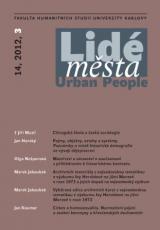Mateřství a otcovství v současnosti s přihlédnutím k historickému kontextu
DOI:
https://doi.org/10.14712/12128112.3504Klíčová slova:
matherhood, fatherhood, parental roles, Czech RepublicAbstrakt
The institution of parenthood has undergone dramatic changes in the past decades, hand-in-hand with the other social changes taking place and mainly affecting socio-economic areas. It was about the 1970’s when women starting making a more distinctive impact on the public sphere and on the labour market, which disrupted the previous concept of private motherhood. Women-mothers began to work in the so-called two-shift model, i.e. not only at home, but also outside of its boundaries. Fatherhood then witnessed a significant shift from authority to the weakening of a father’s role. As a reaction, the policies of many European countries attempted to aid mothers in combining their parental and professional roles and to strengthen the position of fathers through their active involvement in the upbringing and care of their children. In the past decades, there has also been a shift from parenthood as a natural state of things to parenthood as a chosen state. Linked to this is a decrease in the esteem held for parenthood as an implicit part of a fulfilled life in both women and men. This process began even earlier, and was more marked in the countries of Northern and Western Europe in comparison with the Czech Republic and the countries of Central and Eastern Europe.
Stahování
Publikováno
Jak citovat
Číslo
Sekce
Licence

Tato práce je licencována pod Mezinárodní licencí Creative Commons Attribution-NonCommercial-NoDerivatives 4.0.


